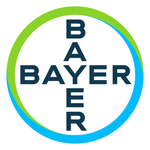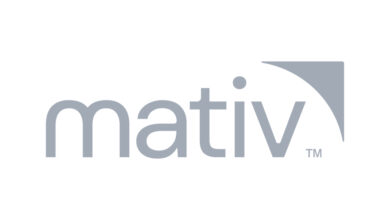Bayer Initiates Phase III Study Program for Investigational Oral FXIa Inhibitor Asundexian
- The OCEANIC program will start with two Phase III studies investigating the efficacy and safety of asundexian in the prevention of stroke events in patients with atrial fibrillation as well as patients with a non-cardioembolic ischemic stroke or high-risk transient ischemic attack1,2
- OCEANIC-AF and OCEANIC-STROKE are expected to enroll up to 30,000 patients in over 40 countries1,2
WHIPPANY, N.J.–(BUSINESS WIRE)–Bayer today announced the start of a Phase III clinical development program “OCEANIC” to investigate the efficacy and safety of asundexian (BAY 2433334), an investigational oral Factor XIa (FXIa) inhibitor, in patients with atrial fibrillation (irregular heartbeat) and in patients with a non-cardioembolic ischemic stroke or high-risk transient ischemic attack (a stroke that lasts only a few minutes).1,2
The initiation of the OCEANIC program is based on data from the PACIFIC Phase IIb clinical trial program which consisted of one study in each of the following medical conditions: atrial fibrillation, a recent non-cardioembolic ischemic stroke or a recent acute myocardial infarction (heart attack) for a total of three studies.1-5 Results from the PACIFIC-STROKE and PACIFIC-AMI studies were presented today at the European Society of Cardiology Congress (ESC 2022) in Barcelona, Spain. Data from the PACIFIC-AF (atrial fibrillation) study were published in The Lancet 6 and presented at the American College of Cardiology’s 71st Annual Scientific Session.7
The OCEANIC Phase III clinical development program will start with two large multinational studies, OCEANIC-AF and OCEANIC-STROKE, expected to enroll up to 30,000 patients in over 40 countries.1-2
OCEANIC-AF (Phase 3 program of the Oral faCtor Eleven A iNhibitor asundexIan as novel antithrombotic – Atrial Fibrillation study) will investigate asundexian compared to apixaban in patients with atrial fibrillation at risk for stroke.1 The primary objectives of OCEANIC-AF are to determine the effects on prevention of stroke and systemic embolism as well as compare the incidence of International Society on Thrombosis and Hemostatis (ISTH) major bleeding.1
OCEANIC-STROKE (Phase 3 program of the Oral faCtor Eleven A iNhibitor asundexIan as novel anti-thrombotiC – STROKE study) will be a placebo-controlled study on top of standard-of-care antiplatelet therapy.2 The primary objectives are to investigate asundexian for non-cardioembolic ischemic stroke or high-risk ischemic attack compared to placebo as well as compare the incidence of ISTH major bleeding.2
“With deep experience and disease understanding, Bayer is particularly strong in the field of anticoagulation and has made significant contributions to the lives of patients. Focusing on Factor XIa inhibition, we are investigating a potential new class of antithrombotics,” said Christian Rommel, Member of the Executive Committee of Bayer AG’s Pharmaceutical Division and Head of Research and Development. “The underlying science of FXIa and Phase II PACIFIC data provide a foundation on which to advance asundexian forward into the OCEANIC Phase III program, one of the largest Phase III endeavors Bayer has undertaken.”1-2
About the FXIa Clinical Trial Program
Factor XI is a protein in the blood which is converted into its active enzyme form (Factor XIa) as part of the blood coagulation cascade.8
The PACIFIC clinical trials form part of the broadest Phase IIb FXIa program in the world, involving more than 4,000 patients to date.3-5 The program is part of Bayer’s commitment to address unmet needs in a growing range of underserved cardiovascular patient communities.
More information about these trials is available at http://www.clinicaltrials.gov/. The National Clinical Trial numbers for these studies are PACIFIC-STROKE (non-cardioembolic ischemic stroke) NCT04304508,4 PACIFIC-AMI (myocardial infarction) NCT043045345 and PACIFIC-AF (atrial fibrillation) NCT04218266.3
About Asundexian
Asundexian is currently being evaluated in thrombosis prevention. Asundexian is a once-daily, oral investigational agent and has not been approved by any health authority for use in any country, for any indication.
About Bayer
Bayer is a global enterprise with core competencies in the life science fields of health care and nutrition. Its products and services are designed to help people and planet thrive by supporting efforts to master the major challenges presented by a growing and aging global population. Bayer is committed to drive sustainable development and generate a positive impact with its businesses. At the same time, the Group aims to increase its earning power and create value through innovation and growth. The Bayer brand stands for trust, reliability and quality throughout the world. In fiscal 2021, the Group employed around 100,000 people and had sales of 44.1 billion euros. R&D expenses before special items amounted to 5.3 billion euros. For more information, go to www.bayer.com.
Forward-Looking Statements
This release may contain forward-looking statements based on current assumptions and forecasts made by Bayer management. Various known and unknown risks, uncertainties and other factors could lead to material differences between the actual future results, financial situation, development or performance of the company and the estimates given here. These factors include those discussed in Bayer’s public reports which are available on the Bayer website at www.bayer.com. The company assumes no liability whatsoever to update these forward-looking statements or to conform them to future events or developments.
References
- OCEANIC-AF data on file. 2022.
- OCEANIC-STROKE data on file. 2022.
- ClinicalTrials.gov. Study to Gather Information About the Proper Dosing of the Oral FXIa Inhibitor BAY 2433334 and to Compare the Safety of the Study Drug to Apixaban, a Non-vitamin K Oral Anticoagulant (NOAC) in Patients With Irregular Heartbeat (Atrial Fibrillation) That Can Lead to Heart-related Complications. (PACIFIC-AF). 2020. Accessed March 2022. https://www.clinicaltrials.gov/ct2/show/NCT04218266
- ClinicalTrials.gov. Study to Gather Information About Proper Dosing and Safety of the Oral FXIa Inhibitor BAY 2433334 in Patients Following a Recent Non Cardioembolic Ischemic Stroke Which Occurs When a Blood Clot Has Formed Somewhere in the Human Body (But Not in the Heart) Travelled to the Brain. (PACIFIC-STROKE). 2020. Accessed March 2022. https://www.clinicaltrials.gov/ct2/show/NCT04304508
- ClinicalTrials.gov. Study to Gather Information About the Proper Dosing and Safety of the Oral FXIa Inhibitor BAY 2433334 in Patients Following an Acute Heart Attack (PACIFIC-AMI). 2020. Accessed March 2022. https://clinicaltrials.gov/ct2/show/NCT04304534
- Piccini JP, Caso V, Connolly SJ, Fox KAA, Oldgren J, Jones WS, Gorog DA, Durdil V, Viethen T, Neumann C, Mundl H, Patel MR; PACIFIC-AF Investigators. Safety of the oral factor XIa inhibitor asundexian compared with apixaban in patients with atrial fibrillation (PACIFIC-AF): a multicentre, randomised, double-blind, double-dummy, dose-finding phase 2 study. Lancet. 2022 Apr 9;399(10333):1383-1390. doi: 10.1016/S0140-6736(22)00456-1. Epub 2022 Apr 3. PMID: 35385695.
- Eagle’s Eye View: Your Weekly CV Update from ACC.org (ACC 2022 Preview). American College of Cardiology. Accessed August 23, 2022. https://www.acc.org/latest-in-cardiology/articles/2022/03/21/01/01/eagles-eye-view-preview-acc-2022
- Emsley J, McEwan PA, Gailani D. Structure and function of factor XI. Blood. 2010;115(13):2569-77. doi: 10.1182/blood-2009-09-199182.
Contacts
Elaine Colón
Tel. +1 732-236-1587
Email: [email protected]






